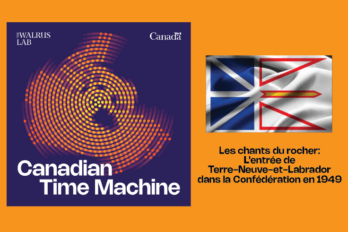When Dapo Bankole reflects on the long, dark months he spent looking for a job as an IT professional after arriving in Calgary as a Federal Skilled Worker, he shakes his head and tears come to his eyes. “Seriously, with everything I did, I thought I was well prepared,” he says.
Bankole, along with his wife and two young children, came to Canada in 2012 with high hopes after five years of getting everything in order for the move. He had obtained all the right certifications from the right Canadian professional organizations in his field before leaving Nigeria. Prior to coming to Canada, he was a successful IT manager in a multinational company, leading a team of seventeen people there, and even more at offices in Ghana and the Republic of Benin. But Canadian recruiters ghosted him after preliminary interviews once they discovered his training and work experience were over there and not here.
As Bankole’s savings dried up, he set his sights lower, working first in a call centre and then at a grocery store on the night shift as well, just to pay the bills. “It got to the point where we had $10 and had to decide if the money should buy gas for the car or food,” he explains.
The immigration conundrum
Many of us have encountered an Uber driver or dollar store clerk who was a doctor or engineer in their country of origin but can’t get a job in their field once they arrive here. Perhaps they didn’t realize their credentials wouldn’t be recognized in Canada, or they underestimated the cost of going through the recertification process.
According to a 2020 report from the Public Policy Forum, a major barrier that prevents racialized immigrants from finding work that matches their skill level is what’s known as foreign credential devaluation. Canadian institutions and businesses often don’t recognize qualifications and education from other countries as being equivalent to those obtained in Canada—regardless of whether that’s accurate or not. The result is that many highly educated newcomers work in jobs they’re ridiculously overqualified for simply because they can’t afford to complete the extra courses or take the exams needed to be hired for what they were already doing in their country of origin.
Bankole had already jumped through those hoops; however, he was missing Canadian work experience, which he couldn’t acquire because no one would hire him unless he already had it. He was getting calls from HR professionals who’d come across his resumé on job sites, but they weren’t leading to second interviews. “I got to a point where I was starting to doubt myself, that maybe the experience I had was nothing,” he says. “Otherwise why would it matter as an IT person if I hadn’t worked locally?”
Another chance

While working multiple jobs he learned about Windmill Microlending. Founded in 2005 by Dr. Maria Eriksen, a Calgary-based clinical psychologist, Windmill is a registered charity offering microloans of up to $15,000 to help skilled immigrants and refugees restart and grow their careers in Canada. They have given loans to over 6,800 clients, funded by both public- and private-sector donors, and the program boasts a 98 percent loan-repayment rate. Once that money comes back, it can then be loaned out to someone else in need, making it a self-perpetuating initiative.
“Normally when you donate something, it goes to operating expenses,” explains donor Susan McArthur, a corporate director and former venture capitalist. “In this case, you make a donation and the majority of the funds go directly into a newcomer’s hands. The loan gets repaid and reinvested in somebody else.”
Bankole applied for a small loan to cover a professional-development course for business analysts, to see if he was somehow missing something in his credentials and experience that was preventing him from being hired.
The course his Windmill loan paid for didn’t teach Bankole anything new, but it did bring back his confidence. “I had literally given up on myself. I was really beginning to feel that I failed my family.”
That renewed confidence quickly led to an offer from Shaw Communications for a three-month internship, which, in turn, led to a job offer with an $83,000 salary. This is not at all unusual for Windmill clients—on average, loan recipients experience more than a three-fold increase in their income, and unemployment drops from 42 percent to 7 percent upon loan repayment.
Full-circle impact
It was a long road for Bankole, but success built upon success, and he now runs a flourishing IT-consultancy firm dedicated to serving immigrant-led small businesses, as well as a podcast for first-generation Canadians. He’s also a recent addition to Windmill’s board of directors, thanks to his knowledge of technology and connections to the immigrant community, combined with his own lived experience.
He’s passionate about Windmill Microlending and the opportunity it represents to others like him, which is why he now donates to them, too. The registered charity goes beyond lending—they teach financial literacy, have a mentorship program, and offer flexible loan-repayment options should someone need to retake qualifying exams.
“The majority of new Canadians have a lot of potential that just gets buried, and the worst part is when people just give up on life,” Bankole says. “They come as doctors or scientists and after years of trying, they settle for any job that puts food on the table. We’ll never know the expertise they would have been able to bring to us as a country. It’s why I support Windmill and why I love their slogan: converting potential into prosperity.”
That prosperity is about more than personal bank accounts—it’s about empowering people.
“What’s so great about Windmill is that they’re actually giving people the tools and the opportunity to help themselves,” McArthur adds. “And that’s fantastic.”
Filling the health care gap
Statistics Canada recently reported 131,200 job vacancies in health care and social assistance in the third quarter of 2021, roughly twice as many as two years ago. With Windmill’s help, those numbers could improve. Just ask Trupti, who used her loan to enroll in George Brown College’s Academic Pathway for Internationally Educated Nurses Graduate Certificate Program in Toronto.

Trupti had been working in the nursing field for ten years in India prior to immigrating to Canada, but she didn’t have the funds to pay for the courses the College of Nurses of Ontario required to obtain her license here. Like many first-generation Canadians, she and her husband took low-skill jobs to pay the bills.
“I left a very reputable job in India and came here to start a factory job,” says Trupti. “I felt like that wasn’t me.”
Windmill Microlending provided Trupti with the funds to cover her courses and textbooks at George Brown and offered her career coaching to help guide her towards her professional goals. The result? Within a month of graduating, she had received her Registered Practical Nurse license and found a great job in her field.
Opening image by iStock.com/studiostockart.




